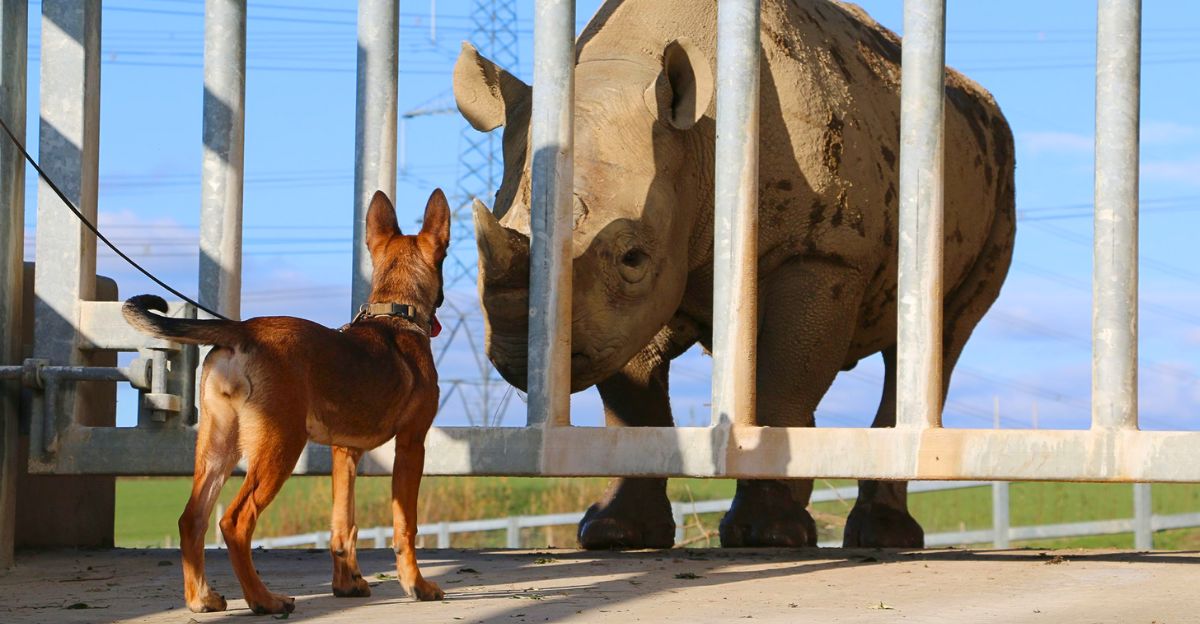
Deep in the heart of Africa’s wildlife reserves, a new unlikely contender is changing the fight against poaching: Welsh puppies. These extremely well-trained dogs, from the rolling Welsh countryside, are now being used to help protect endangered species.
Poaching remains a multimillion-dollar black market business, and traditional security measures are simply not enough. But these puppies, trained to detect contraband wildlife products and track down poachers, are making headlines.
Their story combines conservation science, world-class animal training, and international cooperation. As the battle intensifies, these animal heroes may well be the breakthrough that wildlife protection needs to win this enduring struggle. Let’s see how the Welsh puppies are destroying poaching operations.
The Unlikely Heroes from Wales
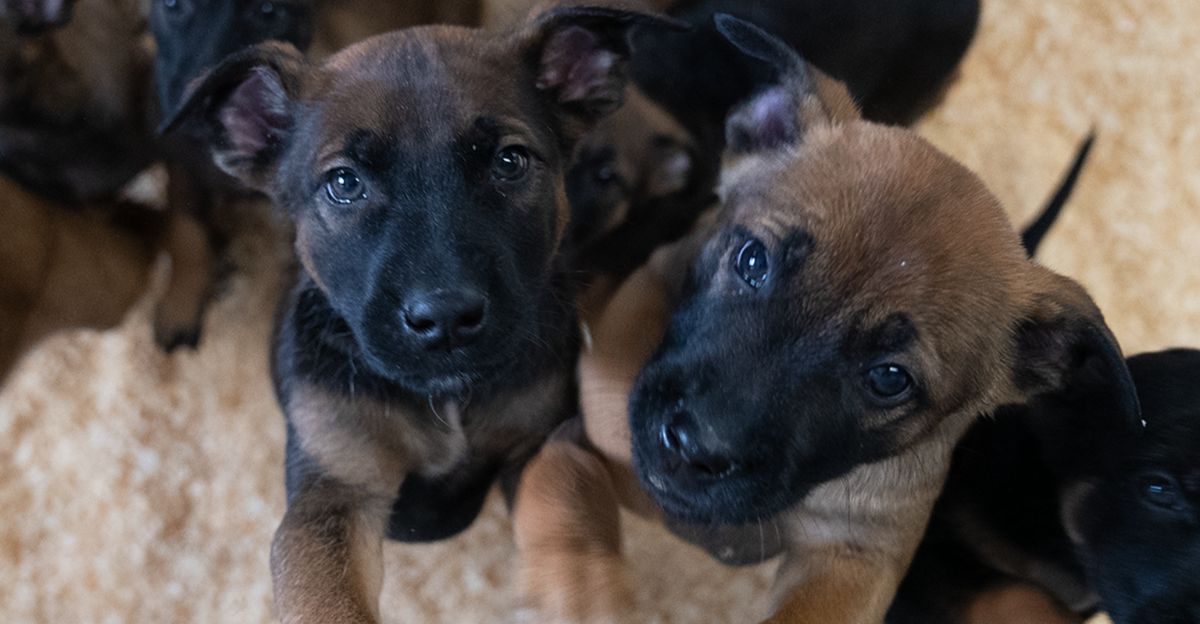
In the hills of Carmarthenshire in Wales, a new generation of anti-poaching troops is busy training. Dogs4Wildlife, an NGO, adopts and trains Welsh puppies as anti-poaching tracking dogs to counter the brutal wildlife protection realities on the African continent.
These are not your average pets. Belgian Malinois and Dutch Shepherds are trained for months to detect contraband, track a scent for miles, and bring poachers to justice. What is so surprising about this undertaking is its unexpected location: the rolling Welsh green hills churning out soldiers for Africa’s war on poaching.
This far, early deployments already show these dogs to be more effective than traditional patrols.
Training Grounds of the Valleys
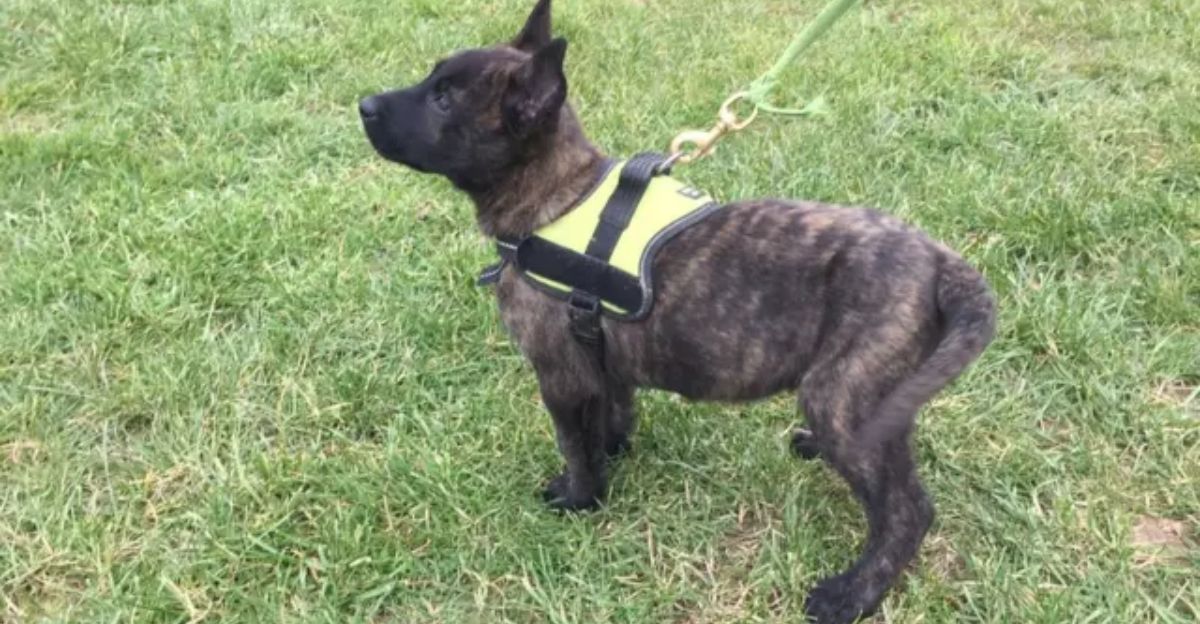
Wales’ scenic landscape is more than postcard-perfect; it’s the ideal training ground for anti-poaching training, providing the perfect landscape for simulation techniques. Puppies at Folly Farm and nearby wildlife parks are subjected to real-world conditions with simulated smells, changing terrain, and controlled poacher scenarios.
They are trained using decoy humans, learning to distinguish friendly trackers from threats. Handlers coordinate high-pressure drills, rewarding correct responses to decoys, firearms, and even dead animals.
These sessions simulate the harsh environment of the African bushlands. By the time they’re sent out, they’re not just trained; they’re veterans in detection, endurance, and rapid response, prepared to perform optimally in unforgiving ecosystems.
Boots and Paws on the Ground
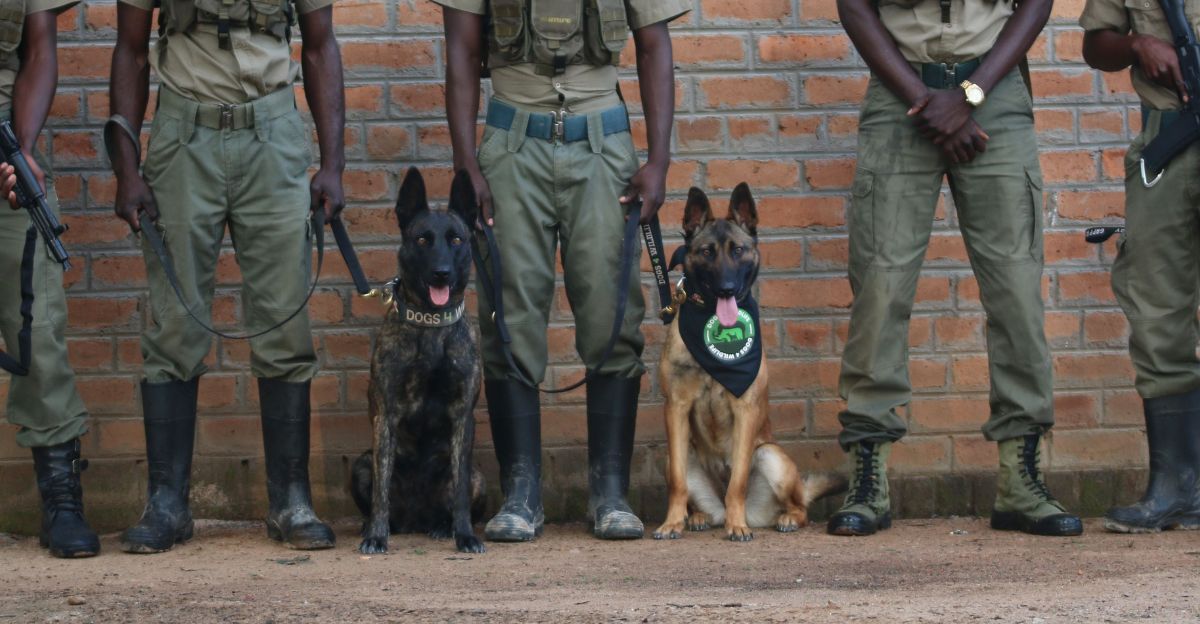
Once they land on African soil, these dogs hit the ground running—literally. Working alongside rangers in reserves, such as the Imire Rhino & Wildlife Conservancy in Zimbabwe, the Welsh-trained dogs have already assisted in making dozens of arrests.
For example, a dog named Shinga followed poachers over six miles and led rangers directly to a site where an illegal trap was set. As a result, poaching activities have significantly declined in regions where the dogs patrol.
As part of their training and tracking, the dogs can detect gunpowder, ammunition, and even the bones of endangered animals. Their reputation spreads quickly among poachers, who now fear the “ghost nose” that stalks them in the dark, thick bush.
The Ripple Effect on Conservation
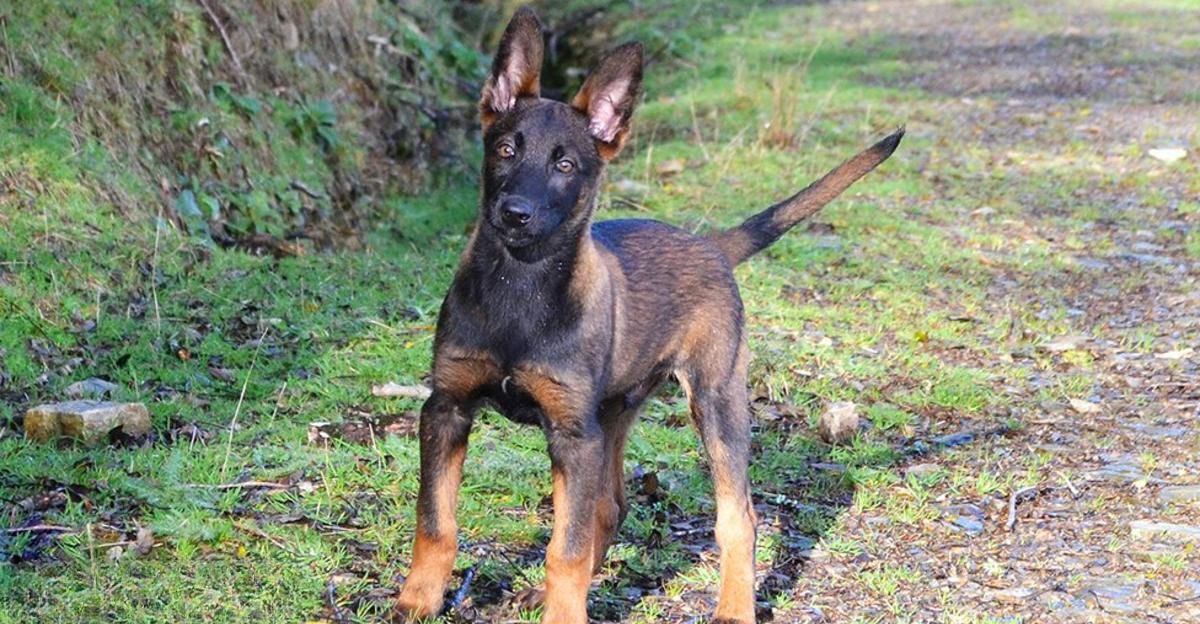
The anti-poaching dogs have accomplished more than just making arrests. Surrounding communities are seeing renewed interest in conservation education and economic alternatives. Schools now incorporate these dogs into their curriculum to teach respect for wildlife.
Visitors are also increasingly drawn to lodges that support anti-poaching dog units, fueling local tourism and the continent’s economies. Conservationists have noted a shift in culture: from seeing poaching as mere survival to viewing wildlife as a community resource.
When children cheer the dogs during ranger demonstrations, it’s a transformative experience. Thus, these dogs are being hailed as rewriting the conservation narrative, pawprint by pawprint.
Challenging Traditional Anti-Poaching Tactics
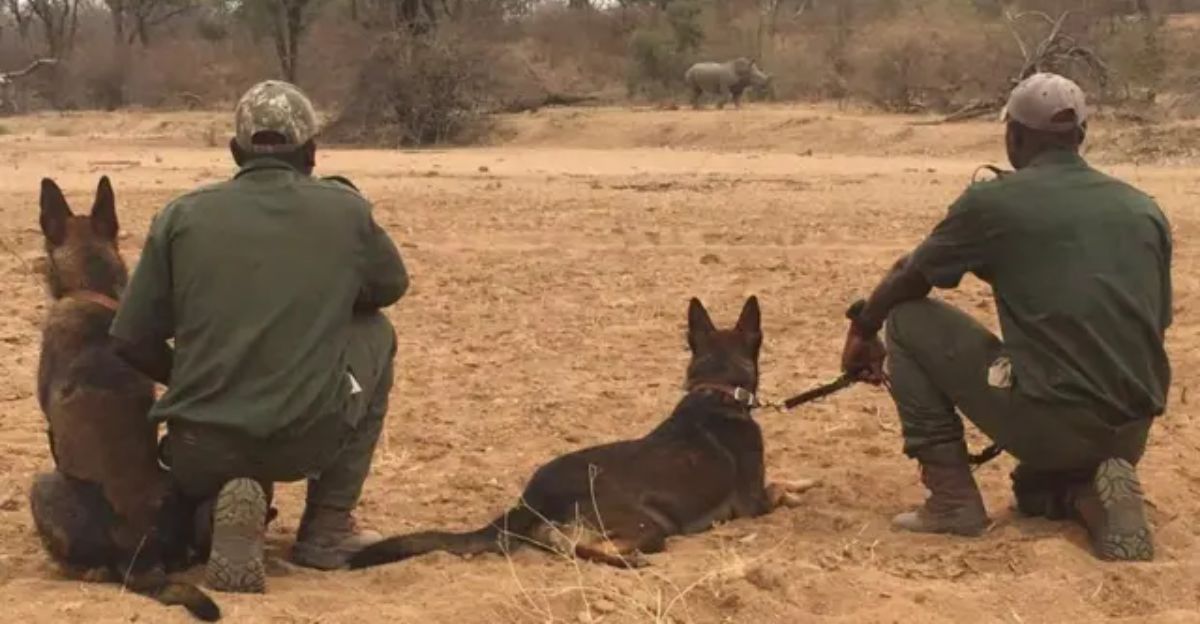
Previously, conventional anti-poaching operations have relied on armed rangers, drone surveillance, and camera traps. None of these compares to the rapid response time and scent-tracking precision of a trained dog.
Drones provide aerial surveillance but cannot track the scent poachers leave behind. Camera traps are good at catching suspects after the fact, but dogs can catch poachers in the act. Critics questioned whether canine initiatives were economically viable, but the Welsh puppies have proven their worth.
The mere presence of trained dogs alone deters poachers. In an era of AI and satellites, it’s an animal, thousands of years old, that’s stealing the show—the domestic dog.
Surprising Allies in the Battle

The success of this initiative stems from a surprising partnership between rural Welsh dog handlers and African park rangers. These two worlds may be galaxies apart, yet they’ve built a symbiotic relationship against a common enemy.
Welsh trainers give obedience and behavioral conditioning experience, while African rangers contribute bushcraft and regionally specialized survival experience. One trainer compared it to “sending your child to war but knowing they’re going with the best possible tools.”
The dog and handler bond is unprecedented, creating a transcontinental family of protectors. It’s a once-in-a-lifetime exception where rural Britain and African bush meet in perfect tactical symbiosis.
Beyond the Battlefield
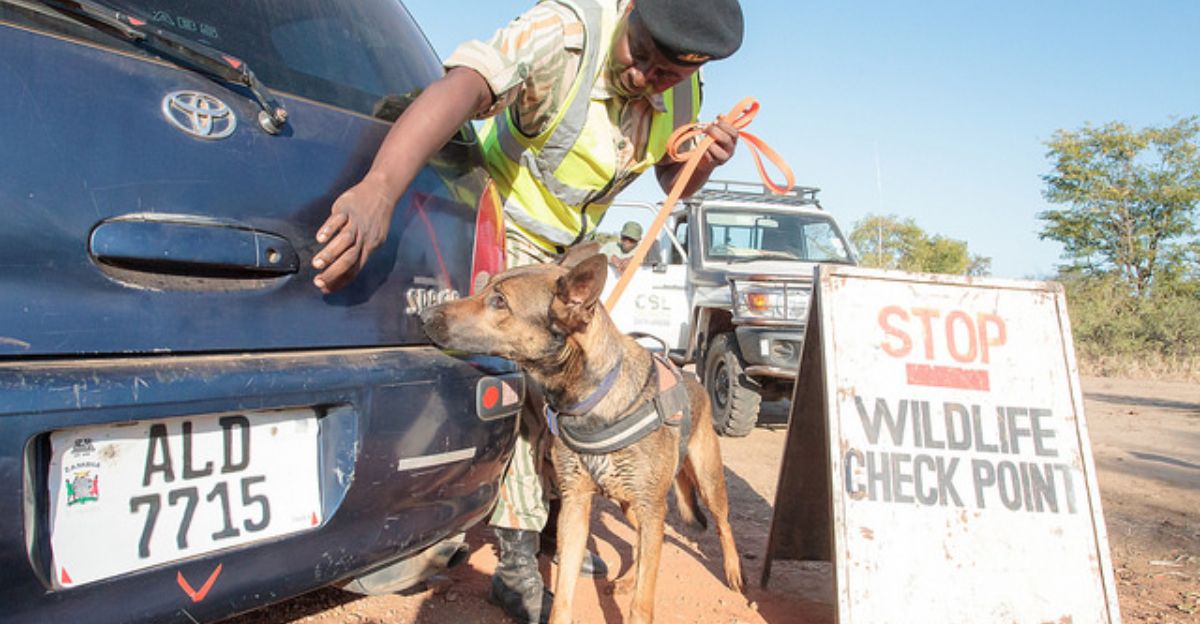
These dogs aren’t just part of evolving tactical techniques—they’re PR dynamos. Shinga and Luna, two of the project’s finest dogs, are local celebrities who appear at school events, radio shows, and tourist pamphlets.
They lend an appealing face to the otherwise dismal war, and their presence has helped to raise thousands of dollars in donations for ranger gear and community projects. This project shows that emotional appeal breeds lasting cultural change.
Conservation ceases to be an abstract theory and is now seen as an animated mission with a face—a four-legged, furry one. Conservation efforts in Africa are receiving the type of publicity that no NGO pamphlet could create.
Measuring Success and Looking Forward
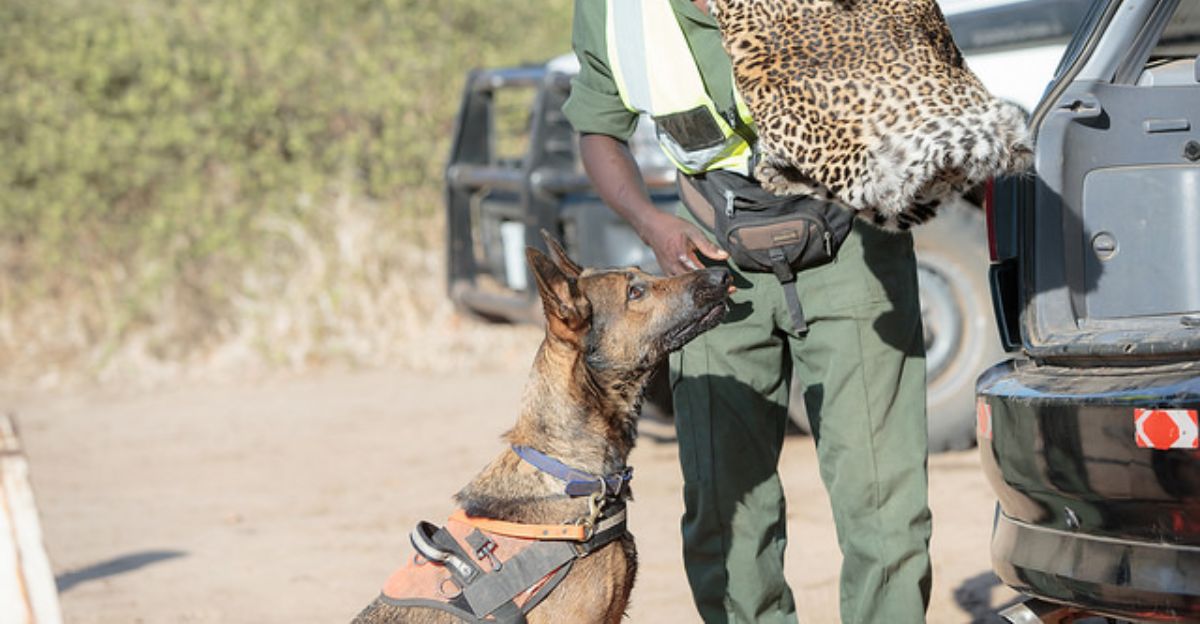
Thus far, the project’s success has been measured based on hard data and anecdotal wins. By adding Welsh-trained dogs, poaching has been reduced by over 60% in certain reserves, and rangers’ morale has improved, with improved efficiency and fewer casualties in night-time encounters.
The project also aims to include specialized training in ivory, pangolin scales, and even guns. Further, Dogs4Wildlife also created a model training syllabus that can be replicated, aimed at expanding these anti-poaching methods to Southeast Asia and Latin America.
As more conservationists appreciate the potential of trained canines, new funding streams are opening up from foreign NGOs and individual donors.
A New Dawn for Wildlife Protection
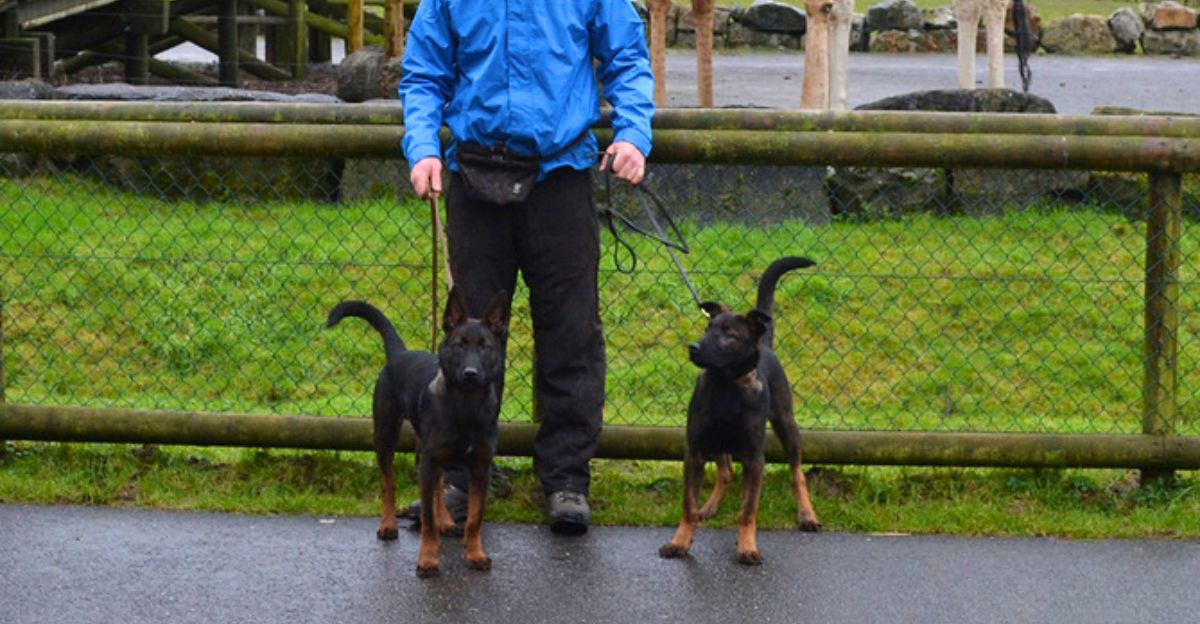
With every paw that touches African soil, these Welsh pups offer more than anti-poaching strategies; they have proven to bring hope. Poaching had been an unbeatable behemoth driven by desperation and greed. Now, it is met by an opponent that’s fast, silent, and incorruptible.
The dogs’ training in harsh environments, tracking capabilities, and rapid response has proven to bring poaching activities to a near standstill, finally taking a step forward in destroying illegal trade operations.
The dogs’ loyalty cannot be bought, their noses cannot be misled, and their training continues to develop as new threats become apparent. While the war on poaching is far from over, the tide is unequivocally turning in our favor.
Explore more of our trending stories and hit Follow to keep them coming to your feed!

Don’t miss out on more stories like this! Hit the Follow button at the top of this article to stay updated with the latest news. Share your thoughts in the comments—we’d love to hear from you!







